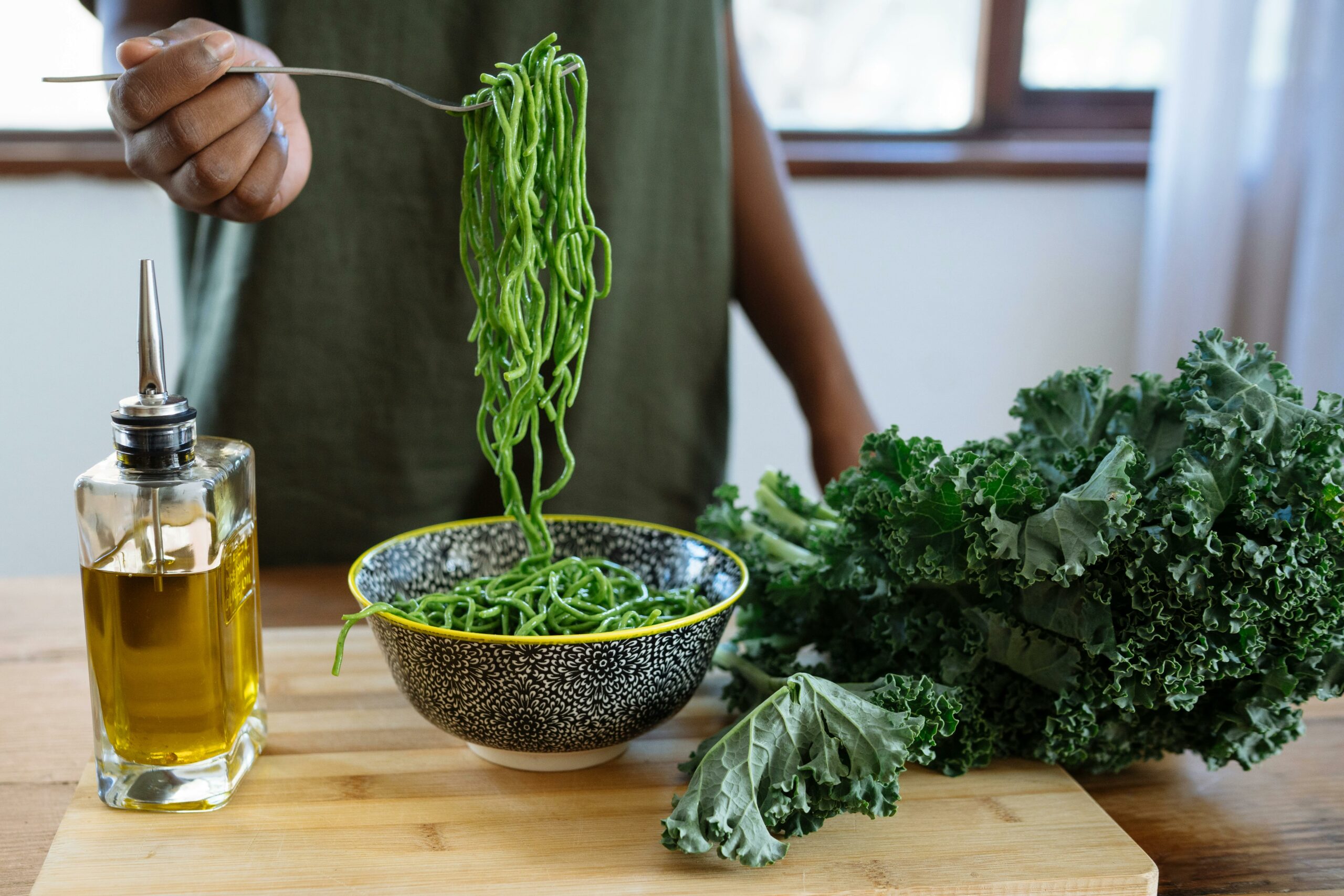
Kale
Kale is one of the most popular and healthiest vegetables out there. It’s a member of the cabbage family, which includes broccoli, Brussels sprouts, and cauliflower. Kale is packed with nutrients, including high levels of vitamins A, C, and K, as well as calcium, magnesium, and iron. It’s also a good source of antioxidants, which can help protect your cells from damage. Kale is low in calories and fat and has a mild flavor that makes it a great addition to salads, stir-fries, and soups. To get the most nutrition out of kale, try steaming or lightly sautéing it to preserve its vitamins and minerals.
Spinach
Spinach is an incredibly nutritious vegetable, packed with vitamins and minerals. It is an excellent source of vitamins A and K, as well as folate, manganese, magnesium, iron, and vitamin C. Eating spinach regularly may help to reduce the risk of cancer, heart disease, diabetes, and stroke. Additionally, it contains powerful antioxidants that can help to protect against oxidative damage and premature aging.
Spinach is also a great source of fiber, which can help to keep you feeling full for longer and aid in digestion. It’s also low in calories, making it an ideal food for weight loss. Finally, spinach contains lutein and zeaxanthin, which can help to protect your eyes from age-related vision problems.
Including spinach in your diet is easy. You can enjoy it cooked or raw in salads and smoothies, or as an accompaniment to your favorite dishes. For a delicious and nutritious side dish, sauté some spinach in garlic and olive oil. Or add it to omelets or soups. No matter how you choose to prepare it, spinach is sure to make your meals more nutritious and delicious!
Broccoli
Broccoli is an incredibly nutritious vegetable and one of the most popular superfoods out there. It’s packed with vitamins and minerals, making it a powerhouse of nutrition.
Broccoli is an excellent source of vitamin C, as well as providing significant amounts of vitamin A, folate, iron, and dietary fiber. It also contains a range of carotenoids and antioxidants, which have been linked to numerous health benefits, such as protection against cancer, heart disease, and inflammation.
One cup of cooked broccoli provides almost 2 grams of protein and just 31 calories, making it a great choice for those looking to lose weight. The fiber in broccoli is also beneficial for digestion, as it helps to keep you feeling full for longer and promotes regular bowel movements.
The health benefits of broccoli don’t stop there. Studies have also shown that regularly eating broccoli can help reduce cholesterol levels and lower blood pressure. It may also be beneficial for preventing cognitive decline and reducing the risk of certain types of cancers.
So if you’re looking to boost your intake of nutritious vegetables, add some broccoli to your plate. Try steaming it lightly or adding it raw to salads and sandwiches. You can also add it to smoothies or stir-fries. Broccoli is versatile and delicious, so you won’t get bored of eating it!
Brussels Sprouts
Brussels sprouts are one of the healthiest vegetables you can eat. They are packed with vitamins, minerals, and fiber, and they are also a great source of antioxidants. Brussels sprouts contain high levels of vitamin K, vitamin C, folate, and fiber. They are also a good source of manganese, vitamin B6, potassium, and iron. Additionally, Brussels sprouts are rich in antioxidants, which help protect your cells from damage caused by free radicals.
Eating Brussels sprouts can help reduce inflammation and lower cholesterol levels. In addition to being healthy for your heart, Brussels sprouts have been linked to improved digestion, weight loss, and blood sugar control. This is due to their high fiber content and low-calorie count.
When preparing Brussels sprouts, try to keep them as close to their natural state as possible. Roasting or steaming are the best methods for cooking Brussels sprouts to keep the nutritional benefits intact. You can also enjoy them raw in salads or lightly sautéed with other vegetables or spices. However you choose to prepare them, adding Brussels sprouts to your diet is an easy way to get some additional vitamins and minerals into your meals.
Cauliflower
Cauliflower is a cruciferous vegetable and one of the healthiest vegetables you can eat. It is high in vitamins, minerals, and antioxidants that can help protect your body from disease and improve your overall health. Cauliflower also contains compounds that can reduce inflammation in the body and promote good digestion.
Cauliflower is a great source of Vitamin C, folate, and dietary fiber. Vitamin C helps boost your immune system and keep your skin healthy. Folate is an important B vitamin for the production of red blood cells, while dietary fiber aids in digestion and can help you feel full longer.
Cauliflower is incredibly versatile and can be enjoyed cooked or raw. You can roast cauliflower with olive oil and spices for a flavorful side dish or make cauliflower rice for a healthier version of rice. If you like raw vegetables, try making a cauliflower salad or adding it to your favorite stir-fry.
If you’re looking to add more vegetables to your diet, cauliflower is a great option. With its high nutritional content and easy preparation, it’s sure to become a regular part of your weekly meal plan.
